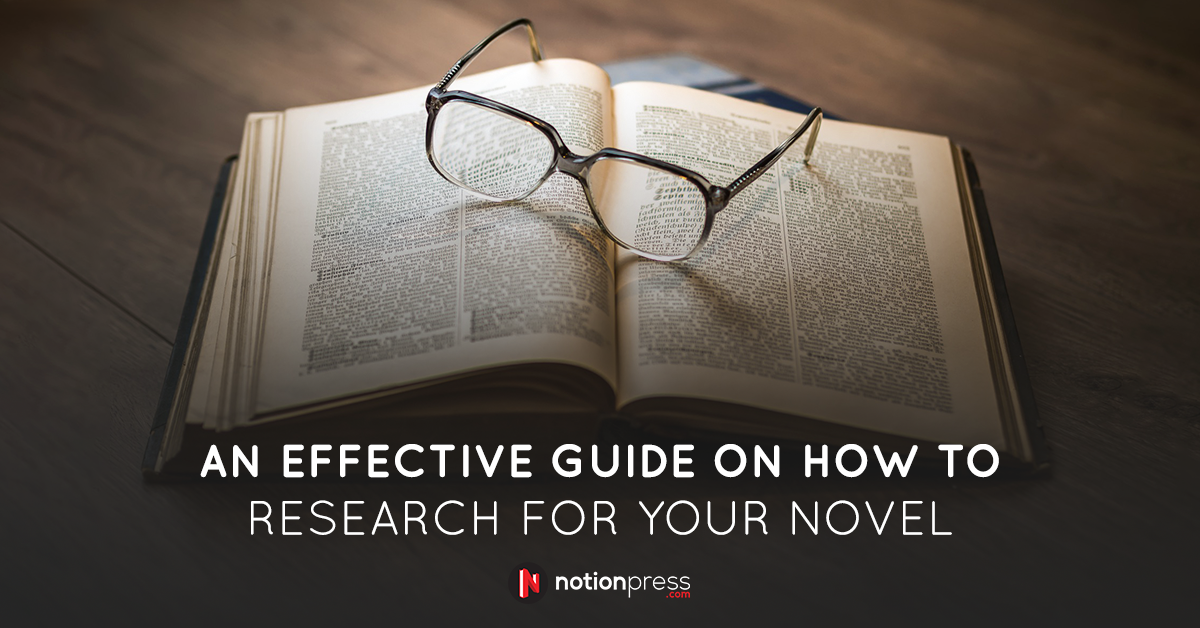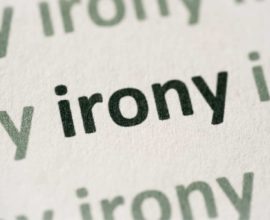An Effective Guide On How To Research For A Novel
One of the biggest questions that every aspiring author has is, “How can I effectively research for my novel?” The answer to this question holds the secret to what makes a writer an author. One of the things that many writers say is,”I have a fantastic concept, but I have no idea how to develop it.”If you are someone who thinks on these lines, then this blog is for you.
There is no hard-and-fast rule on How to do Research for a Novel. However, there definitely are a number of practical ways to do the same.
Regardless of the genre of your novel, the basic research to be done for any novel is more or less the same. However, the downside is that the research procedure is quite tedious. In fact, researching for your novel could probably be the toughest research you’ve ever had to do.
Without further ado, we present to you the most effective guide on How to Research for Your Novel.
Read 100 Books Before You Write One (100 Is an Exaggeration, but at Least 10)
Yes, the first and the best research you can do for your novel is to read another. The books you read need not belongto the same genre as that of your novel – they can be totally different. Reading is what is important here. Read good, well-written books. When you read a well-written, well-structured book, the writer in you will learn about the subtle aspects of novel writing – the spacing, the formatting, the structure, the flow, and what not.
While reading these books, make a note of attributes that catch your eye. They could be dialogues, sentence formations, or a narration – whatever it is, just jot it down. Likewise, if you find something unappealing or displeasing, note that down as well. This way, you will be aware of the strengths and flaws of other novels. Eventually, when you write, you will be able to concentrate on writing your novel without committing any of those blunders.Furthermore, reading is also a good way of getting rid of writer’s block. If you are struggling to reach your daily target, instead of pushing yourself to write further, take a break and read. Reading is an equally important andproductive engagement that contributes to your writing.
Looking for recommendations on which book to start with? Here are the “Nine Books Every Author Should Watch out for In 2017”.
Also, read our blog on How to Avoid Short Dialogues in Fiction
Befriend a Librarian
This may sound likeold schoolreasoning, but it works. Simply signing up for a library membership is unlikely to help. To be able to effectively research for your novel, you must frequentlyvisityour library. From creative writing to self-help books to fiction novels, they are likely to know it all.
In other words, librarians can mostly answer all of your questions. If not, they will at least be able to lead you to the rightresources. As their experience with books and literature is expansive, you are most likely to get the best advice from them.
Most librarians are conversant withthe collection of books in their libraries. Therefore, befriending a librarian implies that you gain free access to a lot of information that they possess about books.
Striking a conversation with a librarian or a fellow bibliophile is more effective than any research that you could possibly carry out, all by yourself. Talk to them about books, listen to their perspectives, and ask them for their recommendations andreference books.
Talk to People
Unlike carrying out research for yourassignments or projects, you cannot restrict yourself to researching for your novel tobooks and the internet alone. One of the major aspects involved in the art of data collection and research for your novel includes talking to people. If you observe them closely, you will realize that even the most introverted writers talk to people.
You don’t have to be a great conversationalist; if you are a good listener, that’s enough.People generally like to talk – especially about themselves. Talk to them, hear their stories, and take their opinions into consideration.
This will help enormouslyin the aspect of characterizing the subjects in your novel. Also, if your story has a character with an off-beat job or a job profile that you are not familiar with, it helps to talk to someone who belongs to that profession. Even if you are writing an entirely fantasy-based novel, it is still important to draw inspiration from real people.
However, talking to people is not something that you can do at your leisure. It is bound to involve other people’s availability and schedules as well. Therefore, it helps to be organized, plan accordingly and schedule appointments. Keep them informed about your plans, ahead of time.
Draftinga questionnaire will definitely help– this will not only save a lot of time, but will also help keep track of all the information you collect during the meeting.
AttendWriters’ Retreats
Writers’ retreats are stilla rarity in India. However, there are some writers’ groups that actively conduct writers’ retreats. Look out for those groups on social media platforms. If you are unable to find a suitable one, a good idea would be to start your own group and organize a writers’ retreat.
Generally, retreats allow you to take time off your regular schedule and write. Furthermore, they can also be an excellent opportunity to explore and research for your novel. Consider this hypothetical situation: You have a great plot. You did your initial research and finished penning down about ten chapters. Now, you are stuck with a writer’s block, or you probably think that you need to do more research before writing. This is when you ought to take a writers’ retreat.
Retreats make you feel rejuvenated and relaxed. They also bring in a change in your surroundings, which will have a positive impact on your writing. Another important reason to take a writers’ retreat is that ‘there is no better way to gather information abouta place than to exploreit yourself’. If your story is based in a city different than yours, it may be a good idea to visit that place to get a feel of it.
To learn more about writers’ retreats, read our blog post on “Why Is It Important for Authors to Take a Weeklong Retreat?”
Read Newspapers
Yes, this is another oldschool method that we are suggesting here. Newspapers are an excellent source of vast information and knowledge. If you are planning to write a thriller, especially a crime thriller, then cultivate the habit of reading the newspaper every day.
This habit will not only help you researchfor your novel, but will also greatly improve your general knowledge. At times, when you read the news, you might accidentally discover a lot of ways to incorporate what you read, into your story.
Here’s a scenario: You are writing a story that follows a timeline. To add strength to your narrative, you may incorporate a few real-life incidents that happened at the time. To gather this information you will need newspapers or news clippings from the internet.
The book “Three Mistakes of My Life” by Chetan Bhagat is exemplary of how to effectively use news to strengthen your novel’s storyline. The book makes references tocricket matches and earthquakes that actually happened at that point in time.There are several time shifts in the storyand these allusions made in the story makes the novel all the more realistic, relatable, and interesting.
Watch Television
Yes, if you are writing a fantasy or mythological novel, watch television.
If you arewriting contemporary fiction, watch television.
We are not asking you to be hooked to the television, but watch related shows and series to examinethe visual element in your story.
For example, if you are writing a story inspired from or based on Mahabharata, you could watch the Mahabharata TV series. Although it is likely that you have already read many books on the subject, you might still be struck by something new when you experience those elements visually.
If you are a contemporary author, then you will definitely know the significance of pop culture references. From Friends to Harry Potter, from LOTR to Batman, the list goes on. Many new-age authors make references to these trending sitcoms and movies in their novel. To understand these concepts completely, you need to watch and re-watch them.
Sometimes, you might find just the information you were looking for in the form of a movie, documentary, or even an advertisement.
Browse the Internet
This is a no-brainer. You have probably already browsedthe internet in the process of writing your novel. It is the first place most of us go to, to find information these days. The internet is indeed a potent source of information. All you have to do is type in a few words, and you can get anything you want–from newspapers to documentaries.
However, one thing that can be really worrisome about gathering information online is that it can be really unreliable. There may be a lot of information online that is not true. Therefore, before using any information from online sources, it is wise to double-check its credibility.
To be safe, it is best to take information only from credible sources, like universities, government websites, ones with proper references, etc. These days, many museums and libraries have their archives available online. Use these official websites for authentic data.
Join a Writers’ Club
One advice that most successful authors give aspirants is to “Join a Writers’ Club.” Yes, even bestselling authors are still part of some book or writing clubs. They make it a point to attend the writer club meets once in a while. The advantages of being a writers’ club member are manifold.
First off, you will have someone who can give you a second opinion on your ideas; and that someone also belongs to the same field, with similar experience and knowledge in writing as you. Secondly, if you are part of well-known writers’ clubs, there is a high possibility that bestselling authors from your locality will also be a part of it. This increases your chance of meeting them and seeking their opinion on your work-in-progress.
Another advantage of joining a writers’ group is you get to understand and be aware of how other authors carry out research. There are plenty of ways by which you can get the information required for your book. There are writers who have interviewed people from various walks of life and used that as an input for their stories.
Furthermore, when you are part of a writers’ group, you will be motivated to write more and reach your daily targets. There are also chances that you will participate in various writing challenges out therethat will help discover your hidden talents. Sometimes, when you are part of writers’ groups, your chances of contributing to anthologies increase.
Finally, if you are suffering from a writers’ block, the best way to overcome it is to join a writers’ club.
Have a Writing Partner
This is one method that many authors swear by. No matter how much you research or browse for data, there is nothing like a real human’s opinion. If you have a writing partner by your sidethat reads your book after every couple of chapters and gives you his/her feedback, you are blessed.
However, there are a few things that you must consider before choosing a writing partner:
- Don’t choose a close family member or spouse as your writing partner–for the obvious reason that they may tend to be biased.
- Don’t choose a person who is writing a book in the same genre or theme as yours – there are high chances that both of you may indulge in unintentional plagiarism.
- Choose someone you can trust and whose honest feedback you wouldn’t mind taking.
- Choose someone who would be passionate and interested in reading a writing that belongs to that particular genre.
Now that you know the various ways in which you can research for a novel, let us tell you when it is recommended to start researching for a novel.
It is always advisable to start researching well in advance. In fact, start researching for your novel as soon as you finalize the plot outline. In some cases, you might need to research to even finalize the plot outline.
Researching might take anywhere from ten days to a few months. Therefore, it is advisable to start researching as early as possible. As a norm, we recommend anywhere from a fortnight to 2 months before starting the novel.
Now, let’s get into the various elements in a novel that will need extensive research.
Element 1 – Time
As we mentioned earlier, regardless of the era your story is based on, researching about the events and activities that happened in that time period is quite important. It may be easy and straightforward to write a story in the present. However, if your story demands that you write in a different period of time, you must know about the various events that happened at that time. Even if your novel is set in the present, it will anchor into a future, so you will still need to research on time.
To be precise, time is the most important element that needs to be researched on for your novel. Again, there are several questions that you will need to answer before moving forward with researching on time for your novel.
- At which point in time will your story be based on – the past, recent past, present, present continuous, immediate future, or future?
- How many days, months, years, or decades will your story run through? Is it a story that will start and end within a year or run across generations?
- Will your story be based on a huge event or calamity – like an earthquake, war, independence, etc.?
Once you have answers to these questions, the next step would be to research. There are high chances that you might miss out on small things that will turn out being factual errors in the end. Are you writing a story about a sunny August afternoon in Chennai, while in that particular year and month, there were floods? To overcome these errors, pay attention to details. You must research about the time, the climate at that point, and the important events that took place in that time. You can get all the information you need by talking to people and also from newspapers.
Element 2 – Place
The second important element when it comes to researching for a novel is the place the novel is based on. Whether it is a historical fiction set in Jhansi or a romantic novel set in Bangalore, you need to know the ins and outs of the place. Just like how writing a story based on the present is easy and pretty much straightforward, writing a novel based on your hometown is something that is quite simple.
However, the problems arise when you have to write a story where the protagonists are based in a city quite different to yours. Imagine this scenario: you write a scene in your story where the protagonists meet at a café in December, when in reality, that café is always closed in winter months. This may seem like a trivial error, but a lot of such simple errors can put your novel in a bad spot among readers.
The whole point of basing your story in a real place is to help your readers relate to the place, the happenings, and your narration. Only if you research well about the place and pay attention to tiny details, you can make your novel a relatable one to your readers.
Also, a novel generally takes readers to a whole new world. Who knows? Just because your characters meet in a café in Besant Nagar, your readers might want to go there after reading your novel. Make sure you don’t disappoint your readers.
Finally, another important reason to research about a place is that the sentiment and culture of your place play a major role in influencing your readers. Only if you truly understand the culture of the city and its people, you can write about it passionately.
To learn more about a place and its people, take a vacation to that place, talk to people from that locality, or read books and news.
Element 3 – Character
If you have thought that character research is only required for historical fiction writing, then you are completely mistaken. Yes, characterization must be perfect and uncontroversial for a historical or mythological fiction. So it should be for any novel for that matter.
Character research is something that you MUST do – there are no two ways about it. Some writers base their characters on people they know and interact with. Some writers draw a character map and write down the characteristics, habits, slang, ancestry, etc. No matter which method you follow, just make sure that it works well.
One of the most ideal ways to research and develop characters for your novel would be through observation and taking notes based on it.The people from whom you draw inspiration for your characterscould be your colleagues, acquaintances, family members, or even best friends. As a writer researching for your novel, you must observepeople’s gestures, their speech patterns, dressing sense, the slang they use, their attitude, etc. All of these will tell a story. While dialogues are an important aspect of any novel, strong characterizationis what that keeps the novel together.
Element 4 – Profession
Once you have researched about the time, the place, and the characters, you might have to assign a profession to each character. Whether your character is a student or an entrepreneur, you need to do justice to their role and their profession. One’s profession plays a major role in one’s attitude, outlook toward life, etc. Therefore, you must research well before defining your characters.
Wherever possible, talk to real people who belong to the same profession as that of your characters and get their inputs. Instead of talking to just one person, talk to many. This will help you understand the positives and negatives of the profession. If your novel has characters that have complicated professions where you may not be able to talk to real people practicing the profession, like terrorists, sex workers, army men, scientists, etc., watch documentary videos, you will definitely be able to understand these professions better when you watch these videos.
If you are planning to write a thriller novel, it is highly recommended that you talk to people from forensics, investigation, etc. to understand the various aspects of a crime investigation. We recommend this because most of this information is better heard and understood right from the horse’s mouth.
Organizing Your Research
Now you know about the various elements involved in researchingyour novel. What’s next? You must know how to organize your research. Organizing one’s research can be really complicated. With the presence of several elements and characters in the novel, you might lose track of the research you’ve done. In this section, we will provide you with an ultimate guide on how to organize your research in an effective manner.
Do check out our blog on “How to organise your manuscript”
There are two important things to keep in mind, when it comes to organizing your research work:
- Your research materials and results must be readily available while you are writing your book.
- You must keep track of the parts where you need to p research.
Have the Research Material Available both In Print and Digital Format
We would suggest you have all your online research work stored in a folder classified and organized based on the elements of research. Also take print outs of all the materials that you have collected online.
Your offline research materials, like hand notes, audio recording, etc., must also be categorized by elements. Scan and transfer these materials to your laptop. This way, you have all the research materials as both in print and on your device.
Are you wondering how much time would be spent on organizing your material? Well, it will definitely take less time than it would take to spend searching for research materials every time you need a reference while writing.
Use Highlighters, Billboards, Page Markers, and Other Tools
Use highlights and page marks on important portion of your material so that you can save time searching for important research references.
If you are someone old school, we would suggest buying a billboard. Consolidate all the information you’ve penned down as sticky notes and organize them on the board. Alternately, you can use online tools that serve as awesome substitutes to the conventional billboard.
Use Scene Cards
“Scene cards are usually physical cards. They are small – the size of an index. They are generally used to summarize each chapter or important scenes from your novel’s manuscript.”
Another awesome way to store your research material is to make scene cards. These cards will have all the information needed to create a scene, right from the summary to the character listing. However, scene cards are not astand-alone tool; you will need other tools and methods to store data, as well to save your complete research data.
Scene cards have an added advantage of being able to help you understand your novel better at all three stages of novel development – pre-writing, drafting, and editing.
Now That You Have Understood How to Organize Your Research, Here Are Some Best Practices to Follow When It Comes to Researching for Your Novel.
- Start Researching Well In Advance – at least a month or fortnight before starting the actual writing.
- Join a Book or Writers’ Club – this will help you get motivated to write more.
- Set a Time Limit for Your Research – researches can be an on-goingprocess. Therefore, make sure that you know when to put an end to researching.
- Retain Your Research Materials Even After The Novel Is Published – who knows,it could prove useful during reprints or down the lane if you write a prequel or sequel.
- Use tools whenever and wherever necessary.
Know When to Stop Researching
Last but not least;you must know when to stop researching. Although you may have put your heart and soul intoresearching,you cannot keepdoing it indefinitely.
That is likely to pose two disadvantages:
- It may lead to side-track writing, which is not healthy.
- It maybecome a never-ending process, where you get obsessed with researching and end up constantly changing your conceptsand characters.
Therefore, learn the art of letting go. To put it bluntly, don’t letyour research delay the actual writing.
Once you have enough information to begin your novel, like the places, names, characters, etc., start writing. You can always get back to researching if there is a need.
How do you knowthe right time to stop/pause researching?
To be honest, you will never know! However, one thing you can do is to set a self-imposed timeline on when you must begin your novel. This way you will keep in mind that you must end your research before the deadline. Also, do not forget that you can always do additional research whilein the process of writing. However, that should only be when it is absolutely necessary or for supplementary information, it shouldn’t impede your writing.All the essential research must be done well in advance.
Read this article before you start writing your novel – “How to Write a Novel – The Definitive Guide.”
We hope by now you have understood the various aspects involved in researching for your novel. You can check out Notion Press Academy to learn more about the various aspects involved in writing. Right from how to convert your blog into a book to how to write a great book blurb for your novel, we have guides for all relevant subjects. The articles will help you understand the art of writing, editing, marketing, and publishing in a better manner.






